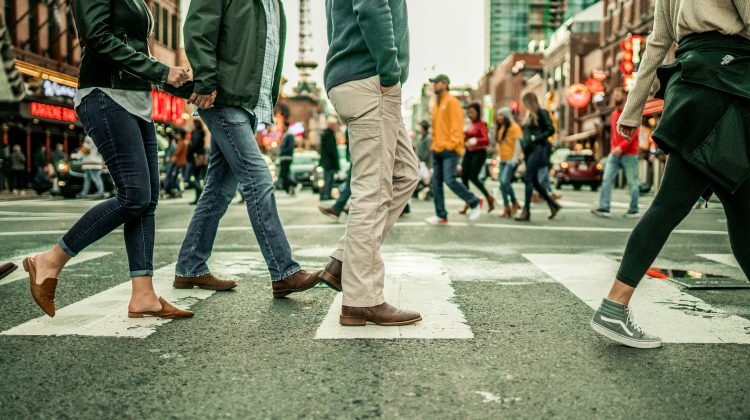As noted by the National Safety Council, in the last 10 years, the number of preventable deaths from bicycle accidents has increased by more than 37%. This illustrates that despite an increase in technological advancement and the further implementation of bicycle laws across the country, riding a bicycle remains a dangerous form of transportation, and that there are still plenty of questions that need to be answered regarding bicycle accidents and the legal implications behind them.
What Evidence is Important to Collect After a Bicycle Accident?
If you believe that you may have an injury claim on your hands following a bicycle accident, gathering the necessary evidence is crucial to proving your case. Bicycle accidents are similar to other personal injury claims in that most of the evidence remains the same. After the accident, you should be sure to collect:
- Pictures/videos after the accident of the damages
- Medical records
- Any bills associated with the crash
- Eyewitness testimony
- Expert testimony
As described by the injury lawyers at Nevarez Law Group, all of this information in the right hands, such as a personal injury lawyer will help paint a picture of the accident and will help you secure any compensation that you may deserve.
Do Bicyclists Always Have The Right of Way?
In most states, bicycles are treated as vehicles in the eyes of the law, as cyclists are required to follow many (if not all) of the same rules as motorists. Therefore, when riding a bicycle, it is expected that the rider is aware of the necessary traffic laws such as the right of way. Much like motorists, bicyclists must yield the right of way to any pedestrians, however, bicycles have the right of way over vehicles in essentially all circumstances. Nevertheless, just because bicyclists have the right of way over cars, that doesn’t mean that they are exempt from fault following an accident. If a rider fails to correctly signal their intentions or are breaking other laws that endanger others, they can be held liable in the event of a crash.
What If Your Bicycle Was Defective?
Along with pedestrians and vehicles, bicycle malfunctions and defects are another leading cause of bicycle accidents. If you were injured as a direct result of a defective product, any businesses associated with the production, handling, and shipping of the bicycle could be held responsible for the accident. If you are looking to make a claim regarding a defective bicycle, you want to gather the necessary evidence that proves there were:
- Design defects
- Manufacturing defects
- Failure to warn
If you are able to prove that any of these three are what caused your bicycle accident, you may be able to hold the manufacturers responsible for any pain and suffering you may have experienced as a result.
How Does Fault Affect Compensation?
Typically, having partial fault in an accident does not affect your grounds for compensation. The only time receiving no compensation is possible is when the accident is entirely your fault, which is very rare in bicycle accident cases. Most bicycle accidents happen because a car does not see or yield to you, so the likelihood of receiving damages is high. In order to ensure your right to compensation, collecting evidence on the scene is your best security.
What if You Were Involved in a Hit-and-Run?
Hit-and-run accidents are not only devastating, but also more complicated. If you’re able to, call 9-1-1 immediately. File a police report and absorb as much information about the driver as possible. Take pictures of the damage to your bike and yourself. Witnesses can be a great help in this, so asking them to assist you in your police report and evidence compiling is always helpful, especially given the highly emotional state you might be in after an accident. Seek medical attention as soon as possible, and be sure medical records can attest to the severity of your damages. Reports and receipts go a long way here.
Do You Need A Bicycle Accident Lawyer?
Bringing in a lawyer for help with compensation can be your greatest asset, especially when an insurance company is denying to compensate you to the fullest extent of your injuries. Bicycle accident lawyers at Hanson & Mouri state that “riding a bicycle can expose cyclists to an increased risk of getting injured,” reinforcing that professionals, insurance and legal alike, are aware of the severity of a bicycle accident’s consequences and have had more than enough experience with it. Take control of the situation by consulting with a lawyer about your options.
What to Ask in Your Free Consultation With a Bicycle Accident Lawyer
Half the battle in deciding whether to go with a lawyer after your accident or not can be with just initiating a conversation. Many people don’t know where to start, what to ask, or if their case justifies legal involvement. The first thing to remember is that lawyers are happy to get involved when and where they can, so a free consultation with a legal expert comes at no disadvantage. Here are some good conversation-guiding questions.
- What kind of experience do you have with bicycle accident cases?
- How will you communicate with me throughout my case?
- How and when will I be charged for your legal service?
- What do you see happening with my case?
- How much compensation can I expect?
- Who will be working on my case?
- What is your success rate with bicycle cases?



No Comment